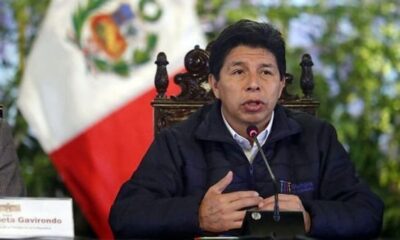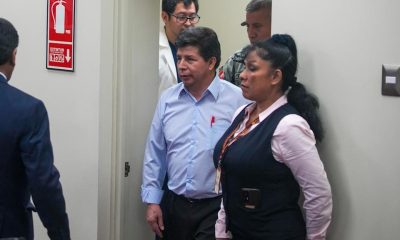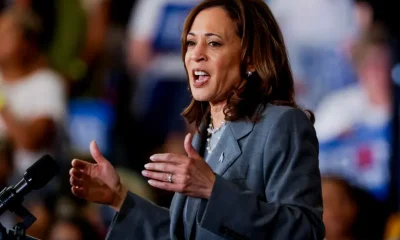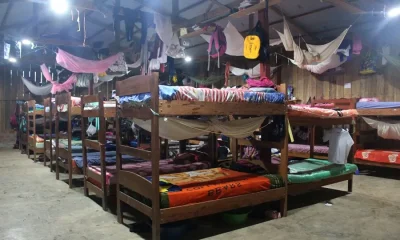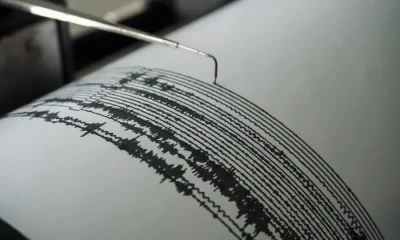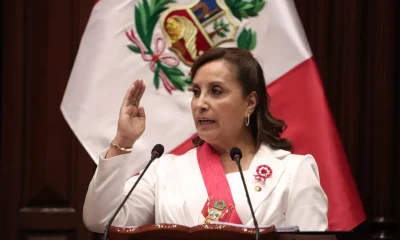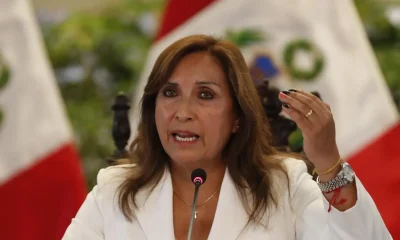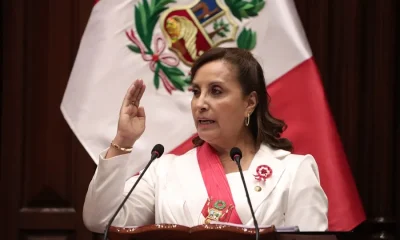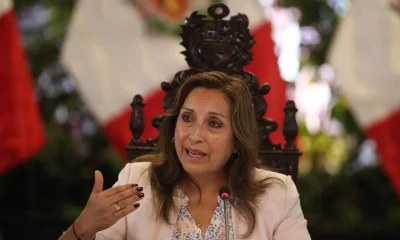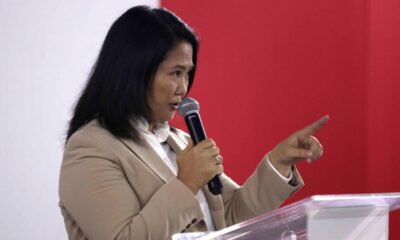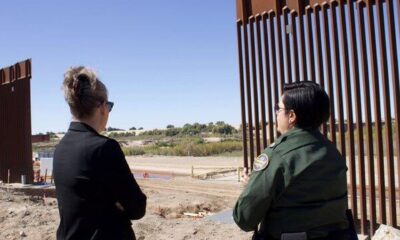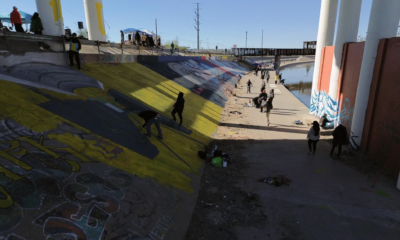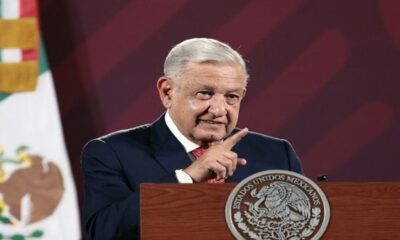International
Peru militarizes its borders in response to the arrival of migrants
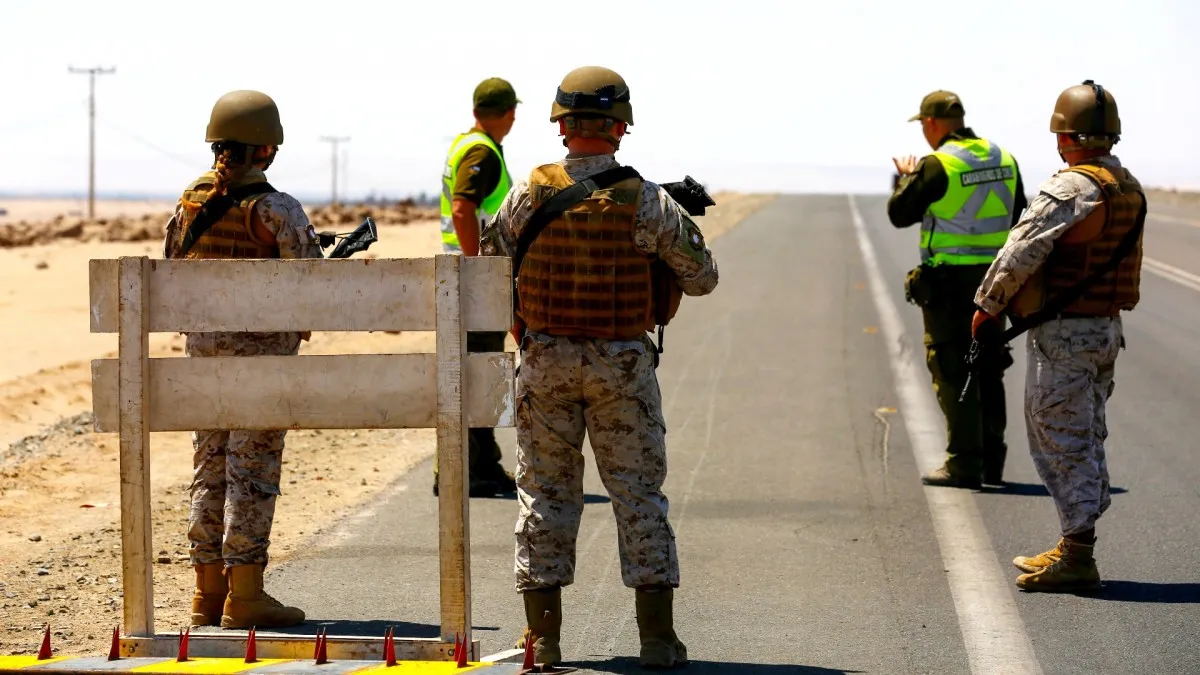
April 27 |
Peruvian President Dina Boluarte decreed on Wednesday a state of emergency on its borders and ordered the deployment of the military to reinforce controls in the face of the arrival of hundreds of migrants, mostly from Chile.
The troops will support surveillance at border crossings with Chile, Bolivia, Brazil, Ecuador and Colombia.
In principle, the state of emergency will be in force as of Thursday. However, the executive has not specified its duration nor whether rights will be restricted at the border crossings.
Relying on press reports stating that “those who commit daily assaults, robberies and other criminal acts are foreigners”, Boluarte claimed that his decision is aimed at combating insecurity.
“That is why we have to speak almost in unison of migration and citizen insecurity”, he said.
In this sense, his Minister of Defense, Jorge Chavez, said that the state of emergency has the “purpose” of avoiding “the irregular and illegal entry” of people.
Under the desert sun and cold, hundreds of migrants who left Chile have been crowded for weeks at the border crossing between the Peruvian city of Tacna and the Chilean city of Arica, where the Peruvian authorities are preventing them from passing for lack of a stamped passport and valid visa.
Women, men and children are trapped between Chilean and Peruvian police officers guarding the border crossing, 1,500 km south of Lima.
The Peruvian government cut them off and sent 200 troops to reinforce migration controls, which had already been tightened by Chile.
According to the UN refugee agency (UNHCR), the majority are Haitians and Venezuelans. The migrants claim that they only intend to cross Peruvian territory to their countries of origin or to the United States, in order to reunite with their families.
“We are between a rock and a hard place, we are doing this because we have our needs, but waiting here for a week, two weeks (…) nobody would want to do that”, said Venezuelan Yosier Canelón to AFP.
UNHCR issued a statement on Wednesday night where it advocated for a humanitarian solution to the situation of migrants on the border with Chile because while “it is the legitimate duty of States to control their borders; it is also important to have regular channels for people in need of international protection, family reunification and other humanitarian issues to access the territory through checkpoints”.
The UN agency welcomed some of the measures announced by Lima, including an “amnesty of fines that will allow 100,000 refugees and migrants in the country to regularize and update their data.”
“Regularization is a lifesaver: regular status is a door to local integration”, he added.
Between Tacna and Arica there has been a daily average of 150 to 200 people.
“They are changing flows, there has been a peak of about 400 people, of different nationalities,” Federico Agusti, UNHCR’s representative in Peru, told AFP on Friday.
Migrants rejected by Peru have improvised camps at an intermediate point, in a sort of geographical limbo between the two countries, and others have returned to Arica.
With the measures announced by Lima “it is going to be more difficult for people to pass (to Peru), and we are going to have a situation of encampment at the border, which is what we have been warning about”, assured Gerardo Espíndola, mayor of Arica, to Biobío radio.
In addition to the state of emergency, Boluarte also announced that those who have entered Peru irregularly in recent years “will have a period of six months to go to the Peruvian authorities to regularize their situation”.
It is estimated that the Venezuelan population in Peru, which represents almost 9 out of 10 foreigners, is close to 1.3 million people, of which one third do not have a migratory permit to stay in the country, according to the National Institute of Statistics (INEI).
International
Spain’s irregular migrant population rises to 840,000, study finds
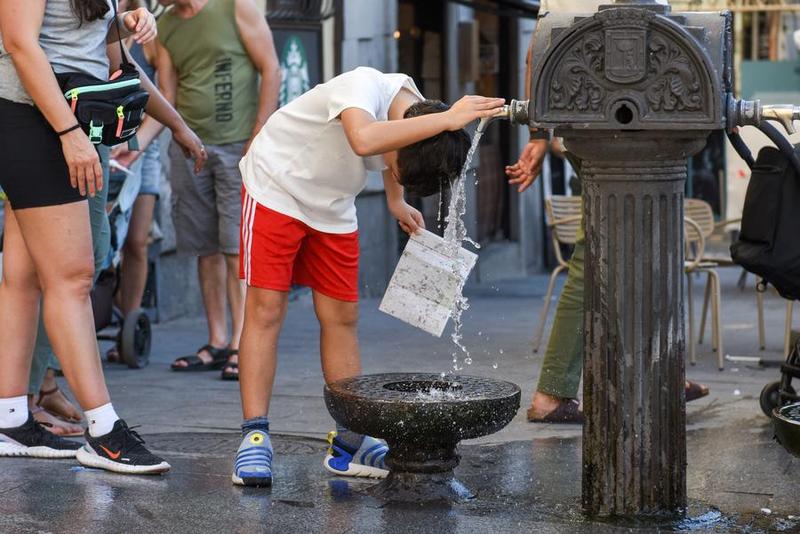
The number of migrants living in Spain without legal residency status continues to rise and has reached 840,000 people, with 91% originating from the Americas, particularly Colombia, Peru and Honduras, according to a report by the Spanish think tank Funcas (Foundation of the Savings Banks).
An estimated 17.2% of the non-EU foreign population living in Spain is in an irregular administrative situation. The estimate is based on the gap between the number of foreign residents effectively living in Spain, according to the National Statistics Institute (INE), and those who hold a residence permit, benefit from international protection, or are in the process of obtaining it.
The data, as of January 1, 2025, point to a notable and sustained increase in irregular migration since 2017, when the estimated figure stood at around 107,000 people, representing 4.2% of the non-EU population residing in Spain.
By origin, migrants from the American continent stand out, totaling around 760,000 people, or 91% of all irregular migrants. Colombians account for nearly 290,000, followed by Peruvians with almost 110,000, and Hondurans with about 90,000. Migrants from Africa (50,000), Asia (15,000) and Europe (14,000) trail far behind.
The figures predate Spain’s latest immigration regulation reform, which came into force in May 2025 and introduces measures to ease access to legal status through residency ties. According to Funcas, the reform would, in principle, tend to reduce the number of migrants in an irregular situation.
International
Historic snowstorm paralyzes Toronto after 60 centimeters of snow

Toronto, Canada’s largest city and the fourth most populous in North America, was largely paralyzed on Monday after a historic snowstorm dumped up to 60 centimeters of snow and sent temperatures plunging to -15 degrees Celsius, authorities said.
Late Sunday, as the scale of the snowfall became clear, city officials declared a climate emergency, triggering extraordinary measures including parking bans on several major streets to facilitate snow removal operations.
Toronto’s public transit authority reported that while some buses remain immobilized, subway and streetcar services are operating with relative normality, though localized disruptions may occur.
A similar situation is affecting the city’s commuter rail network, which remains operational but is experiencing significant delays on its main routes due to the severe weather conditions.
International
Venezuela frees at least 80 political prisoners, NGO says
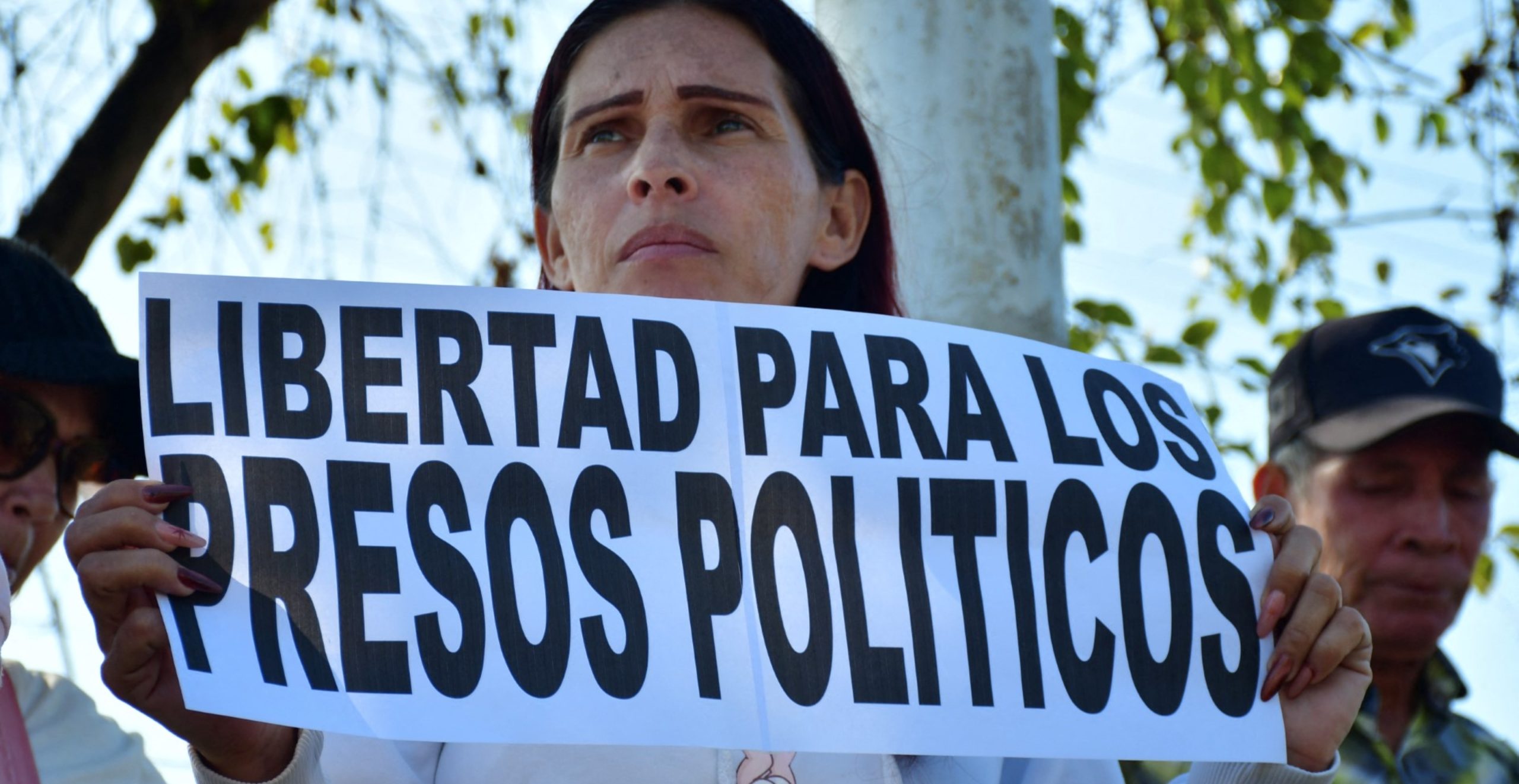
At least 80 political prisoners were released on Sunday across Venezuela, human rights group Foro Penal reported, as the broader process of detainee releases continues at a slow pace under the interim government.
Foro Penal’s director, Alfredo Romero, wrote on social media platform X that verified releases took place nationwide and that the figure could rise as more confirmations are completed.
Attorney Gonzalo Himiob, also from Foro Penal, said the excarcelations occurred during the early hours of the day and emphasized that the number is not yet final pending further verification.
The releases are part of a series of steps announced by Venezuela’s interim leader, Delcy Rodríguez, who took power after the capture of former President Nicolás Maduro in a U.S. military operation on Jan. 3, 2026. Rodríguez has pledged a significant number of liberations but has been criticized by opposition groups and rights organizations for the slow and nontransparent nature of the process.
So far, the Venezuelan government reports that 626 detainees have been freed since December, though independent counts by human rights groups suggest the number of actual political prisoner releases is lower and that many remain behind bars.
Families of those still detained have maintained vigils outside prisons, hopeful for further releases even as broader concerns about political imprisonment and due process persist.
-

 Central America5 days ago
Central America5 days agoMazatenango Carnival cancelled amid State of Siege in Guatemala
-

 International5 days ago
International5 days agoTrump to invite Venezuela’s interim president Delcy Rodríguez to Washington
-

 International5 days ago
International5 days agoMarkets rise as Trump halts Europe tariffs and floats Greenland agreement framework
-

 International5 days ago
International5 days agoVenezuela’s interim president predicts 37% increase in revenues for 2026
-

 International3 days ago
International3 days agoTrump-Era Defense Plan Prioritizes Border Security and Scales Back Global Commitments
-

 Central America3 days ago
Central America3 days agoGuatemala’s president rules out negotiations with inmates after prison riots
-

 International5 days ago
International5 days agoJapan reopens Kashiwazaki-Kariwa Plant despite public concerns
-

 Internacionales3 days ago
Internacionales3 days agoMajor winter storm threatens “catastrophic” ice and snow across much of the U.S.
-

 International5 days ago
International5 days agoFour minors killed in deadly clash between FARC dissidents in Colombia’s Amazon
-

 International3 days ago
International3 days agoBogotá and Quito Seek Dialogue After Tariffs and Power Cut Escalate Tensions
-

 International3 days ago
International3 days agoGuatemala considers sending high-risk gang members to military prisons
-

 International2 days ago
International2 days agoDelcy Rodríguez seeks political agreements after Maduro’s ouster
-

 International3 days ago
International3 days agoRights group says over 5,000 killed in Iran protests, mostly civilians
-

 International2 days ago
International2 days agoFederal immigration agents kill man in Minneapolis, sparking protests and outrage
-

 International10 hours ago
International10 hours agoHistoric snowstorm paralyzes Toronto after 60 centimeters of snow
-

 International10 hours ago
International10 hours agoSpain’s irregular migrant population rises to 840,000, study finds
-

 Central America10 hours ago
Central America10 hours agoGuatemala seizes over a ton of cocaine hidden in flour at Pacific port
-

 International10 hours ago
International10 hours agoRights group says nearly 6,000 killed in Iran protest crackdown
-

 International10 hours ago
International10 hours agoVenezuela frees at least 80 political prisoners, NGO says
-

 International10 hours ago
International10 hours agoEU launches new probe into X over AI-generated fake nude images
-

 International11 hours ago
International11 hours agoFrance debates ban on social media for children under 15
-

 International10 hours ago
International10 hours agoSevere winter storm grips U.S., leaves multiple dead as extreme cold persists

























